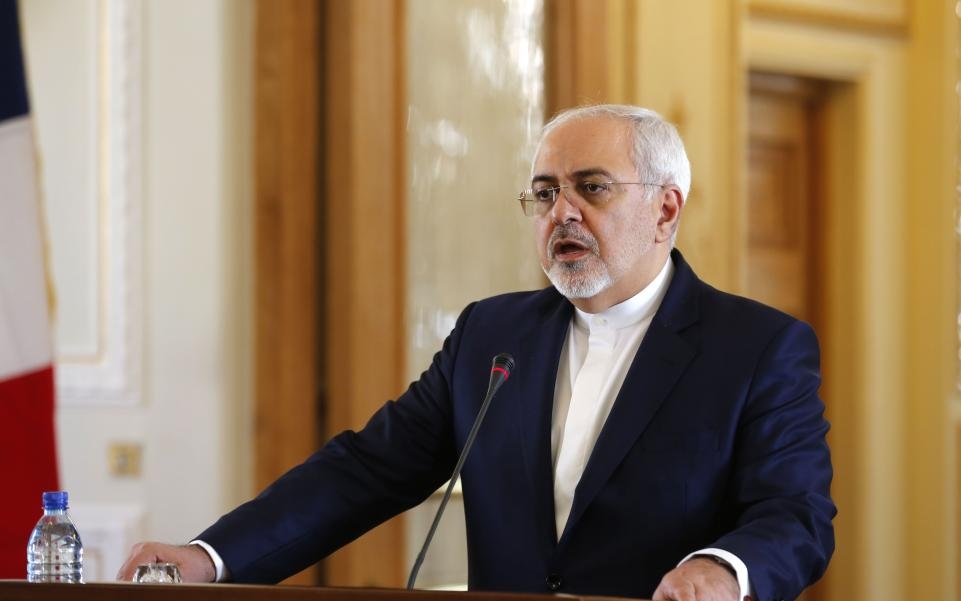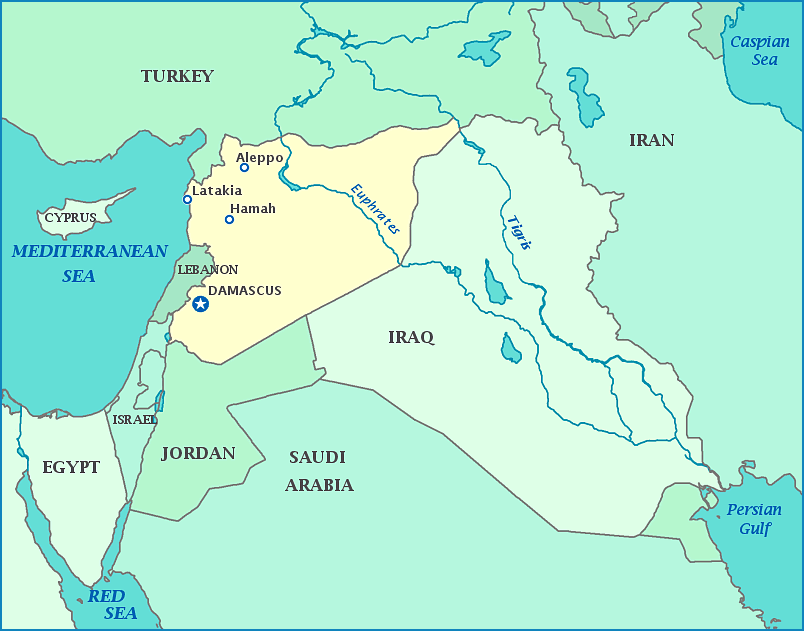Israel-Iran tensions escalate
April 23, 2018 | Expert Insights

Iran and Israel have a long and adversarial history. In the past week, there has been a surge in hostilities between the two countries in Syria. Iranian Foreign Minister Zarif has claimed that major escalation is unlikely. However, leaders on both sides have maintained a highly aggressive and threatening rhetoric.
Background
Historically, there are cultural and strategic bonds that tie Persia with Jews that would ideally make Iran and Israel allies rather than enemies. Over 25 centuries ago, the founder and the ruler of the Persian Empire, Cyrus II freed Jewish people who were imprisoned and enslaved by the Babylonians. He also declared that they could return to their homeland and rebuild their destroyed temples. During the Holocaust, Iranian diplomats played a key role in saving the lives of thousands of Jews. When the state of Israel was formed, most of the Iranian Jews migrated to Israel.
Read more on Iran and Israel’s historical ties here.
Relations between Iran and Israel have been hostile since the 1990s. Ties deteriorated after Ayatollah Khomeini came into power during the Iranian revolution in 1979. Khomeini opposed positive ties between the two nations. Israel and Iran began fighting in proxy wars against one another during the tenure of Mahmud Ahmedinijiad, the President of Iran from 2005 to 2013. In 2006, reports emerged that Iran had provided aid to Hezbollah fighters (considered a terrorist organisation by Israel) during the Lebanon war. Israel is said to have carried out three specific airstrikes targeting Iranians during the Gaza conflict. The two nations have blamed each other for terrorist attacks, assassination, cyberattacks and more.
Syria
Israel’s role in the Syrian War has much to do with its hostile relations with Iran. Though the official position on Syria is neutrality, a number of Iranian proxy militant organisations have been involved in the Syrian War, including Hezbollah. Israel’s air force claimed that it had struck arms shipments to the Iran-supported militant group approximately 100 times in 2017 alone.
In 2017, Mossad chief Yossi Cohen said, "As long as the current regime exists, with the nuclear agreement or without it, Iran will continue to serve as the main threat to Israel's security.” Benjamin Netanyahu, the Prime Minister of Israel has accused Iran of trying to turn Syria into “one large missile factory”, with the aim of attacking Israel.
In February 2018, reports emerged that an Israeli jet that was returning from while from a bombing raid on Iran-backed positions in Syria was downed by anti-aircraft fire. The aircraft, F-16, was one of eight planes that had been dispatched by Israel in response to an alleged incursion by an Iranian drone. In the past month, tensions have escalated further. On April 9th, Israeli aircraft reportedly conducted an airstrike from Lebanese airspace on the Iranian Revolutionary Guards Corps (IRGC) base in Syria. Seven members of the Corps died. Tehran blamed Israel for the strikes. “You live in the mouth of the dragon,” Hossein Salami, deputy commander of IRGC warned, adding that a war would result in Israel’s “annihilation”.

Analysis
The IRGC has a growing presence in Syria. Analysts believe that Israel is concerned that Iran will soon establish a permanent military base in the region. Iran’s Quds Force and Shia militias that support Assad’s regime, are also a cause for Israeli concern. While Israel and Russia have cordial relations, and coordinate to avoid military clashes, these ties may be deteriorating, according to some reports. Iran has a presence in a number of Middle Eastern countries, including Lebanon, and Yemen.
It is also possible that Iran is suspicious of Israel’s improving relationship to other countries in the region, including Saudi Arabia, with whom Iran has a contentious relationship. Some have noted that Tehran is likely troubled by American presence in neighbouring countries including Bahrain and Afghanistan. The Iranian nuclear deal (JCPOA) adds an additional layer of complexity. Israel has been a harsh critic of Iran’s nuclear deal, while Iran has warned that those withdrawing from the deal would “regret” it, and that Iran would respond.
On April 10th, Israeli Defense Minister Avigdor Liberman said, “No matter what the price, we will not allow Iran to have a permanent [military] foothold in Syria. We have no other choice.” He said that agreeing to Iranian presence in Syria was akin to “placing a noose around our necks.” “We are facing a new reality – the Lebanese army, in cooperation with Hezbollah, the Syrian army, the Shia militias in Syria, and above them Iran – are all becoming a single front against the state of Israel,” he said.
Israel recently withdrew its F-15s from air force exercises in Alaska, an action that some have interpreted as a response to escalating tensions in Syria.
Counterpoint
In an interview with CBS News, Iranian Foreign Minister Mohammad Javad Zarif said that he did not believe direct conflict between the two nations was likely. “I do not believe that we are headed towards regional war but I do believe that unfortunately, Israel has continued its violations with international law, hoping to be able to do it with impunity because of U.S. support and trying to find smokescreens to hide behind,” he said.
Israeli PM Netanyahu noted that there was an “enormous gulf between [Zarif’s] words and the actions of the Revolutionary Guards”. He claimed that the IRGC were “building up an army against Israel with the declared aim of destroying the State of Israel.”
Some analysts have echoed Zarif’s belief that Israel and Iran are unlikely to enter into a war. Israeli intelligence minister Israel Katz has stated that Israel is “Not interested” in escalating tensions with Iran. A war between the two nations “could be devastating for Israel’s flourishing high-tech economy and for Iran’s already collapsing currency,” noted New York Times analyst Thomas Friedman. Neither country would be keen to bear the economic consequences of a prolonged conflict.
Additionally, while Israel sides with the United States on Iran and Syria, Israel also has largely positive ties with Russia. Russia has coordinated with Israel to avoid military clashes in Syria. Israel’s hope that Moscow’s presence in the region would serve as a balance, might still hold. Netanyahu reportedly has a good relationship with President Putin.
Assessment
Our assessment is that tensions between Iran and Israel have reached an unprecedented high. As we have stated previously, we believe that both Iran and Israel are standing at the edge of a larger conflict that could embroil most of the Middle East. However, neither country can count on backing from the US or Russia in such a war. It is yet uncertain whether Moscow would risk providing military support to Iran in a war against Israel. Additionally, Tel Aviv cannot count on support from Washington, as President Trump has announced the possibility of withdrawing US troops from Syria.
Iran and Israel have engaged in proxy warfare in the past. Will Syria become a front for an Israel-Iran war?








Comments